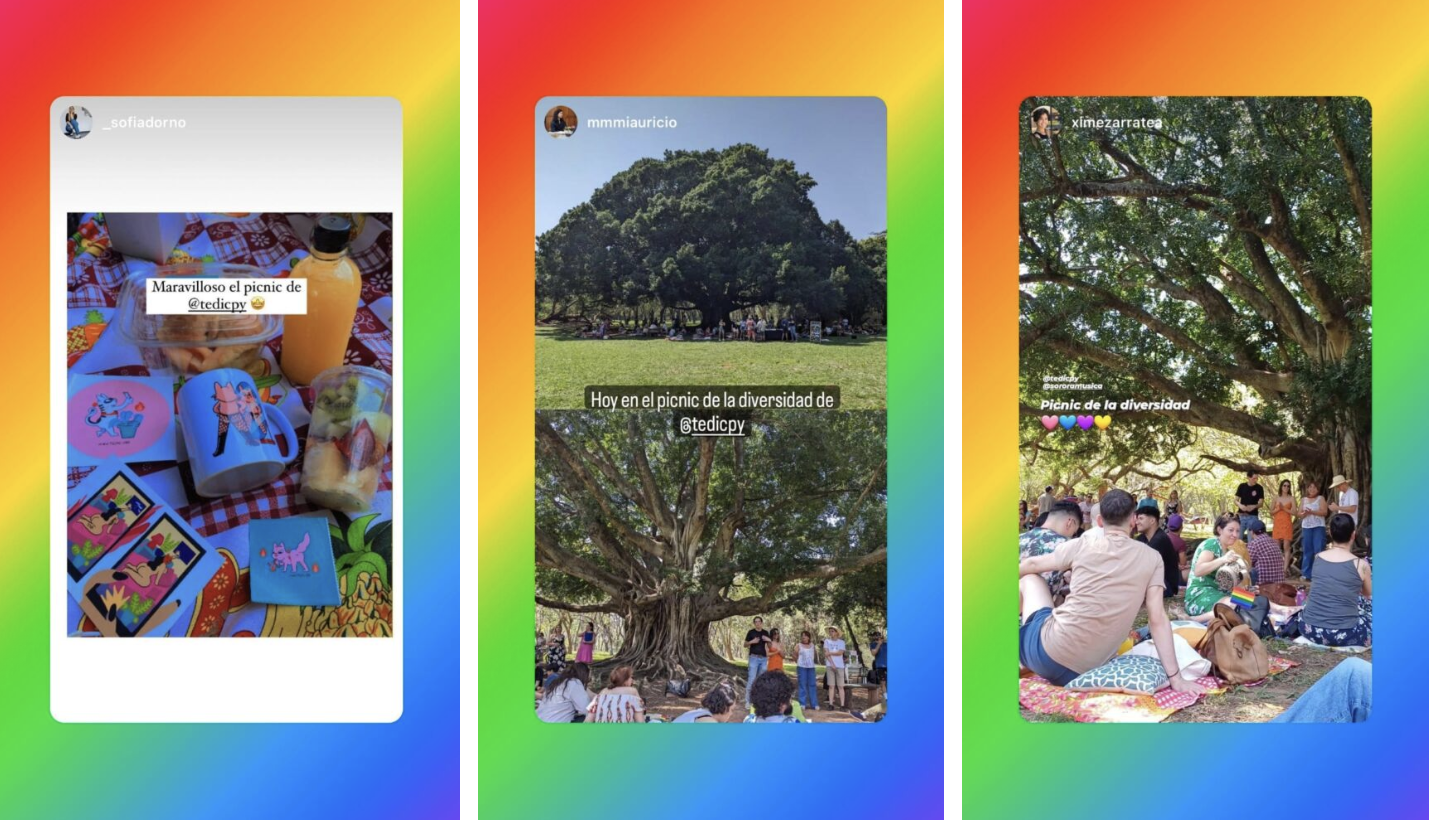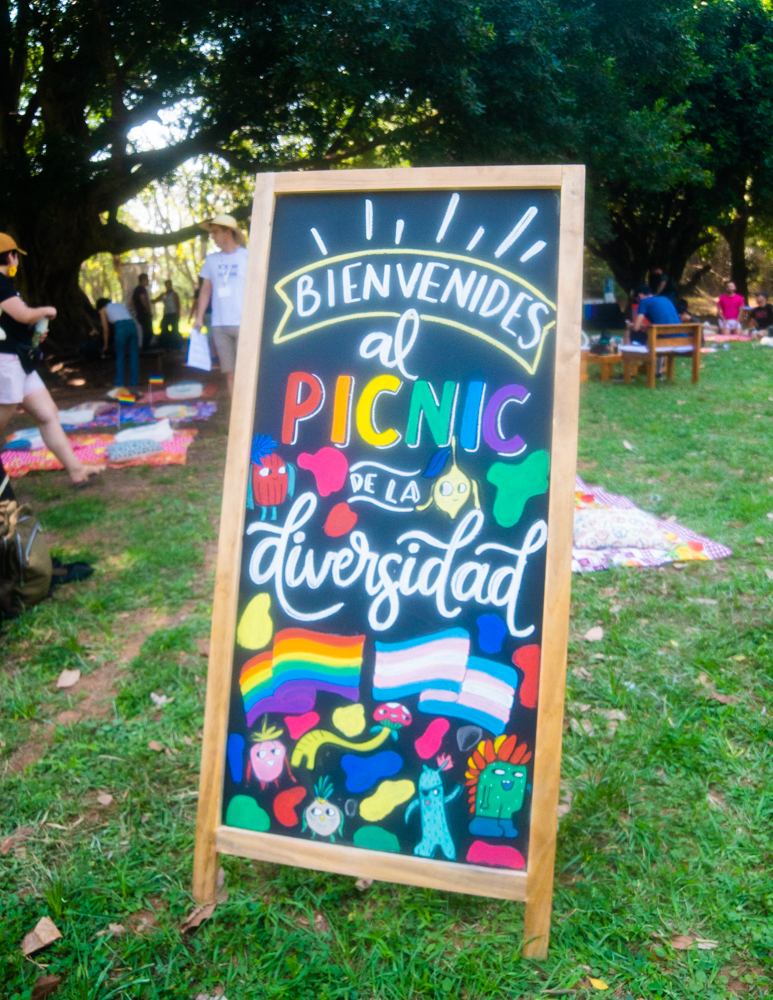
The year 2023 marked a significant period in Paraguay. Presidential elections were marred by disinformation campaigns, anti-rights narratives and hate speech against LGBTQIA+ people, especially in digital spaces. On social media, candidates and malicious actors used fake accounts and troll farms (institutionalised groups of internet trolls seeking to interfere in political opinions and decision making) to harass female candidates and gender-diverse individuals, all while using the rhetoric of "defending life" and "family values". Anti-abortion groups were among the main aggressors, inhibiting participation in public debate and contributing to the perception that the elections were biased.
The actions of anti-rights groups in the country, and throughout the Latin American region, have a long history closely linked with political and economic powers. However, in recent years their actions have intensified against gender equality, the advancement of women's rights, LGBTQIA+ rights, and sexual and reproductive rights, particularly the right to abortion and sexual education.
In response to these trends, the LGBTQIA+ community in Paraguay continues to take action through community-driven initiatives. One event that particularly stood out took place in the country's capital, Asunción, during Pride Month, to celebrate the community while emphasising the importance of digital security in today's connected world.
Community-driven initiatives and environmental justice

TEDIC Paraguay, a leading digital rights organisation and member of the APC network, collaborated with Cristianos Inclusivos and Unidos por el Arcoiris to host the Picnic of Diversity: Libres & Segures, supported by an APC subgrant, on 23 September. Over 150 people gathered in the Botanical Garden of Asunción, considered “the lungs of the city”, before the largest LGBTQI+ march taking place that day.
“We wanted to showcase the talent within the community by featuring artists who are often overlooked in mainstream circles,” Araceli Ramírez, communication coordinator at TEDIC, stressed in an interview with APCNews. The prominent drag queen Envidia Me Tenes headlined the show, delivering a powerful performance with themes of environmental justice and inclusivity, creating a narrative that deeply resonated with the audience. This artistic expression enriched the event and fostered a sense of belonging and representation for the community.
Notable figures such as the capital’s Deputy Johana Ortega and US Ambassador Marc Ostfield attended to offer support and promote the event. Participants enjoyed a colourful rainbow cake and relaxed in a welcoming atmosphere, which allowed them to connect, share stories and simply be themselves.
One of the most significant outcomes of the picnic, according to Ramírez, was the increased visibility and participation of trans women. “These women have always faced high levels of exclusion and violence in Paraguay, so having them at the event, enjoying themselves and being accompanied by their families, makes a big difference. This change in community dynamics results from years of work to create safe and welcoming spaces,” she highlighted.

Integrating digital security
The picnic was more than just a gathering; it was a learning journey. TEDIC trained volunteers to present digital security content engagingly and informally, aligning with the event’s festive theme. Educational resources included bookmarks with QR codes linking to the Libres & Segures campaign, comics, zines, stickers and tote bags designed for free distribution. Security tips include the safe configuration of social networks, such as passwords, two-factor authentication, password managers, etc.
The response was overwhelmingly positive, Ramírez emphasised. “Participants appreciated the accessible format and engaging content, which complemented the thematic training sessions offered during the event. By taking home these resources, they could continue their learning journey, improving their skills to navigate online spaces more securely, and also enabling them to share these tools with their peers,” she said, emphasising the horizontal growth aspect.
Fostering meaningful dialogues around diversity and inclusion
“We wanted to focus on activities that highlight the festive nature because, as the LGBTQIA+ community, we are often relegated to invisible spaces, especially in a highly conservative society that lacks legal protections for our community members. The picnic aimed to be a safe space where we could share through celebration, art and education,” she added.
The event also challenged social norms and conservative attitudes, fostering meaningful dialogues around diversity and inclusion, Ramírez stressed. “By bringing together people from diverse backgrounds, TEDIC not only celebrated the community but also promoted broader understanding and acceptance within society.”
Reflecting on the event overall, “TEDIC is proud of the success and the positive feedback received,” and plans to build on this momentum by continuing to engage with the LGBTQIA+ community and allies. Regarding future projects, they note the need for further awareness and training in digital security, leveraging the partnerships formed during this event. “Accessible content and training of volunteers ensure that TEDIC can replicate and expand these efforts, reaching even more people in the future.”
This piece is a version of the information provided by TEDIC as part of the project Picnic of Diversity: Libres & Segures, adapted for the Seeding Change column. This column presents the experiences of APC members and partners who were recipients of funding through APC's core subgranting programme, supported by Sida, and of subgrants offered through other APC projects.
Did this story inspire you to plant seeds of change in your community? Share your story with us at communications@apc.org